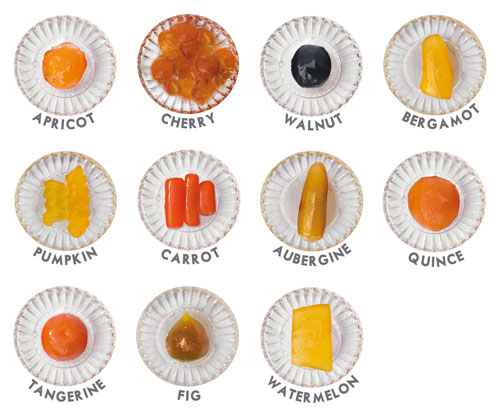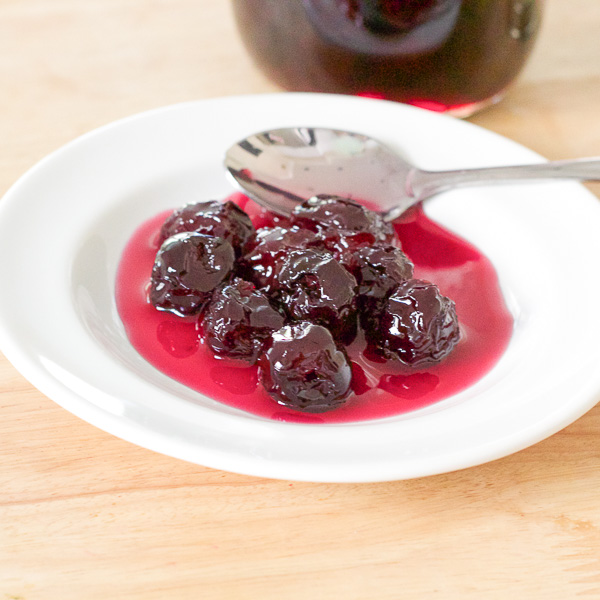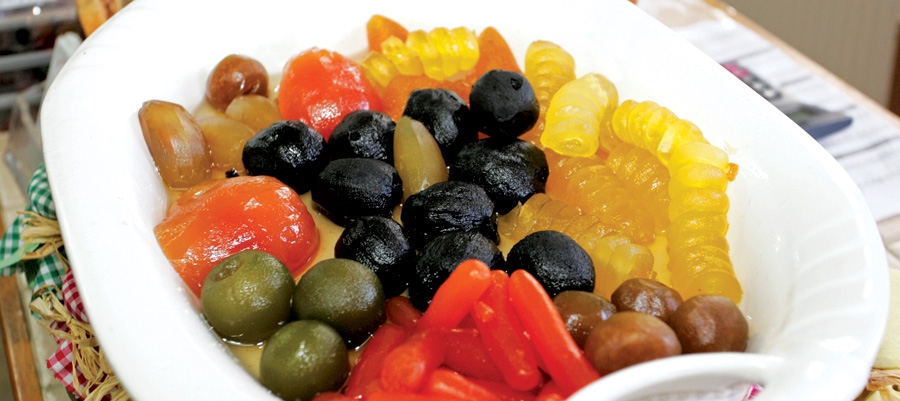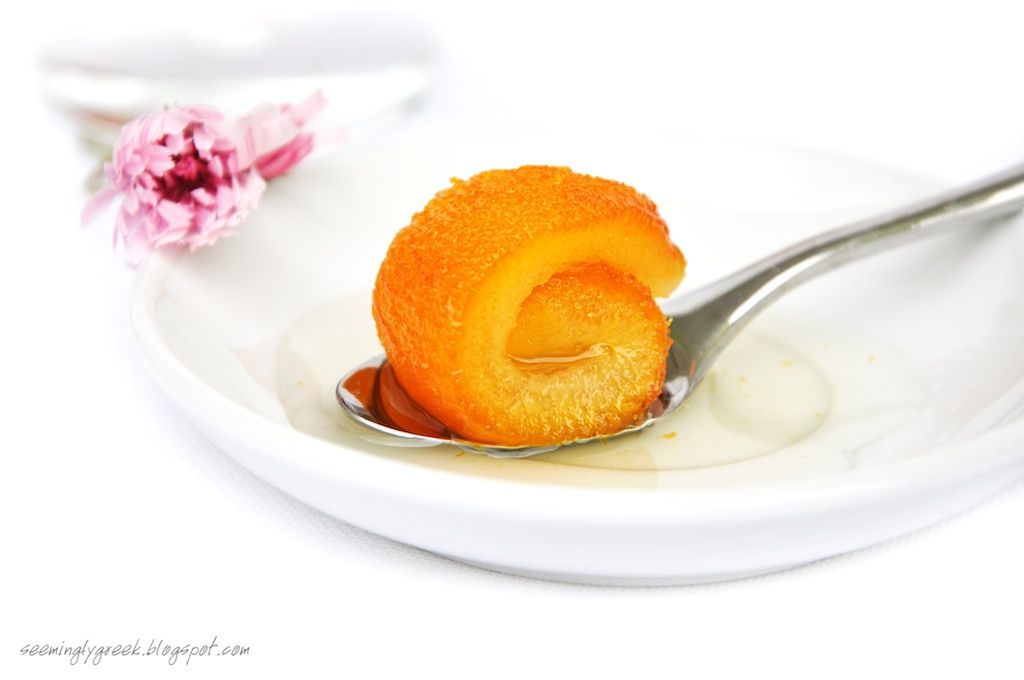As their name indicates, the traditional glyka ‘spoon sweets’ are candied preserves that are typically served on a small spoon and offered to guests as a symbol of hospitality, always with a glass of cold water.
When visiting the island, you may find you are offered one at the end of a meal and although the portion may appear small, you won’t be able to manage a second serving as they are very sweet – and half the time you will be unable to identify exactly which fruit or vegetable has been candied!
Almost any fruit, vegetable, nut or peel can be preserved, and the sweets are often flavoured with vanilla, cinnamon or pelargonium (scented geranium leaves).
The more common sweets are made from figs, cherries, watermelon rind and citrus peel, walnuts, apricots, marrows, grapes, bergamot or almond stuffed baby aubergines. Some are made from fruit that is otherwise inedible, such as the ‘kitromilo’, the bitter Seville orange that cannot be eaten raw.
Preparation is similar to that of marmalade; the ingredient of choice is first soaked in water and cooking lime (calcium hydroxide) to become crispy, then in water and lemon juice to become shiny and preserve its colour, before it is gently boiled in sugar over several days.
In more traditional times, spoon sweets were given as wedding favours, whereby the guests would eat the sweet directly from the spoon, which was then washed for the next well-wisher. Almost every Cypriot home had specially-made delicate serving dishes and tiny silver forks and spoons with which they served the sweets to their guests. The family recipe for making the preserves was traditionally passed down to the daughters.
In today’s modern Cypriot society, it is more common to buy a jar, and you can find a number of different brands that make a lovely gift or a traditional souvenir to remind you of your visit to the island.




Via Visit Cyprus
